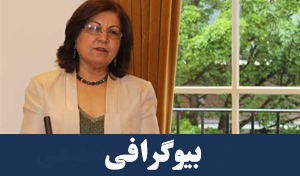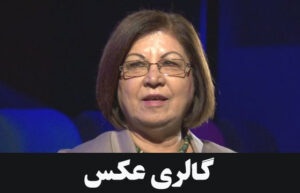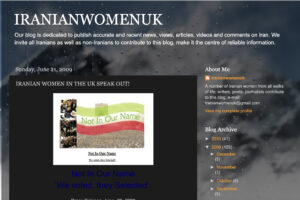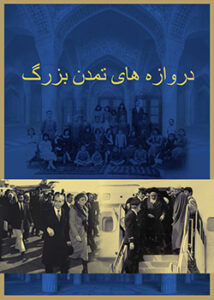پرندگان مهاجر
Migrating Birds
A selection of poems by
Jaleh Esfahani
Tanslated from Persian
by
Rouhi Shafii
Migrating Birds
Published by
…………
First published in 2006
Jaleh Esfahani is known to be the author of this book. All rights reserved. No part of this publication may be reproduced, used in any form, shape or means, without the prior permission of the author.
ISBN
Translations: Rouhi Shafii
Original poems: Jaleh Esfahani
Cover design:
Bewildered silence,
the anthem of a nomad star
in the universe.
A poem was born,
the beginning of which
hymn of gods
and you
the beginning of all my songs
Memorandum to the reader
I began to know her slowly, steadily and in the course of sitting with her, deciding which piece to chose for translation. This intimate experience took us into the orbit of a nomad star. It was a pleasant journey, full of fun, laughter, worries and explorations. I began to know her in the splendid bewilderment of poetry and I saw her world through her eyes and did all my best to portray it into English, which after all is not my mother tongue, nor hers.
It is as though she has never left Esfahan and lived close to the River Zendeh Rood. It is as though she is visiting the rose gardens of Shiraz, hikes over the slopes of the Alborz mountains, walks on the shores of the roaming river, just to rest for the night in her bed somewhere in Azarbaijan, Russia or London. And the Rood lives in her, roaming and roaring:
Living freely among the human family,
though never forgetting Zendeh Rood
and hidden at night
wept its loss.
Though she had left home many decades ago but had returned night after night to walk across the Thirty Three Column Bridge that leads to Jolfa, the Armenian township on the other side, where she had her first dance lessons as a teenager. To her, Esfahan, the city which was once called half of the world, is alive and immortal:
The alleyways, unchanged, the town as it were,
the mountain in place, the river, roaring,
the meadows, still green, Zendeh Rood, unchallenged
and the domes and the beauty of the minarets,
ancient epics.
Migration has brought with it that sense of not belonging, of otherness and alienation but she has tried to assimilate in her new environment wherever she has gone and has spoken the language of hope and unity. In her, the distance stretches far beyond migrating birds. Migration had been the story of her life and writing in and about migration has occupied a massive space in her work:
Oh, migrating birds
where are you flying in such haste
in this still sunset?
Your journey might last
till spring comes to the garden
and the apple blossoms bloom without you.
Displacement and migration paints a tableau that each and one of us, migrants, hangs from the wall of our inner thoughts as we live through years away, far away from where we once called home.
In her poetry, migration finds a deeper root:
Latitude of migration,
gradual discolouration of identity.
In the latitude of migration
Poets are birds with no nest and no heir.
Though she had not had a nest of her own choice for as long as she remembers, nevertheless, Jaleh Esfahani’s poetry has been her strength, the point of departure and return. In her long, fruitful life, despair had come and gone but never overcome her:
I do not lament in vain
the pen in my hand
dagger and mirror.
Jaleh’s poetry is a heritage that crosses the boundaries of time and space. It transcends the borders of her home country, Iran, goes into the Silk Road, gains strength from the socialist system in the then Soviet Union, where she had lived for thirty years, expands into the wider world as she gets close to humanity and always mixes with nature and natural beauties. Jaleh is a philosopher, humanist, socialist, feminist and above all, an admirer of natural beauties.
For Jaleh, life has a philosophy, a meaning and a beauty. Life should not be lived in vain, in waste:
I adore the god of earth
the flames of the burning heart
the fire of love
which shine in your eyes.
I believe in the power of a human
who grows thousands of stars
over the wing of thought.
Jaleh is the painter of life, an artist of no boundaries and no country. She reminisces the past, writes against tyrants and oppressors, those who have ruled her country for as long as time remembers but for her, humanism can not be confined to a particular country. Humanism as a universal concept has a strong presence in her work but above all, it is the belief in self and the power of humans that distinguishes Jaleh’s poetry:
I swear by the red rose at dawn
the tree that broke by thunder
has run roots into soil
and will soon blossom.
Unaware we are of our power
in us, thousands of designs
to beautify the world.
In search of beauty, Jaleh goes to the farthest corners, a wild mountain plant/ silver moon riding high on emerald tree/ the dead winter tree covered in blossoms/ the bird asleep, the stars awake/ the parks green, wrapped in tulip/ and water, water, the sea not the river, ships moving, boats crossing, people sailing, reaching the shores that await them with a green smile.
Movement, the presence of turmoil, the drive to sail and distance from the turmoil, to succeed and conquer. Hope in abundance, love everywhere, the joy of life, the centre stage:
To be joyous is an art,
should other hearts beat with
the drum of happiness
inspired by us
life would be a unique scene of art.
Jaleh Esfahani is an establishment of many faculties. While she has written about migration, nature, humans, dictators, oppressors and oppression, which portrays her political world views, she has also dedicated a massive part of her work on liberty and free thinking. Veils and walls, females wrapped and shrouded, shadows and walls, voices not heard, faces covered from the moon, the sun and the male fish in the pond.
Some sixty years ago, Jaleh called on the Iranian women to wake up and free themselves from slavery, to become equal partners in the humans society:
Time to fly out of the cage sisters
spread your wings and fly away.
Woman in Iran does not live
does not live.
This is not life but slavery.
How can slavery be called living?
I conclude my notes and let the reader decide,
who is Jaleh Esfahani?
A captive,
chained to the earth?
A razing thunderous river
Flowing forever across time?
A woman perched on the ocean rock,
half human,
half bird
with fluttering wings
foot holding on the rock
head to the stars.
Who is Jaleh Esfahani, I would like to ask?
River,
Forest?
Forest and river?
River and forest?
The sea, the sea, not the river?
Rouhi Shafii, London
2005






